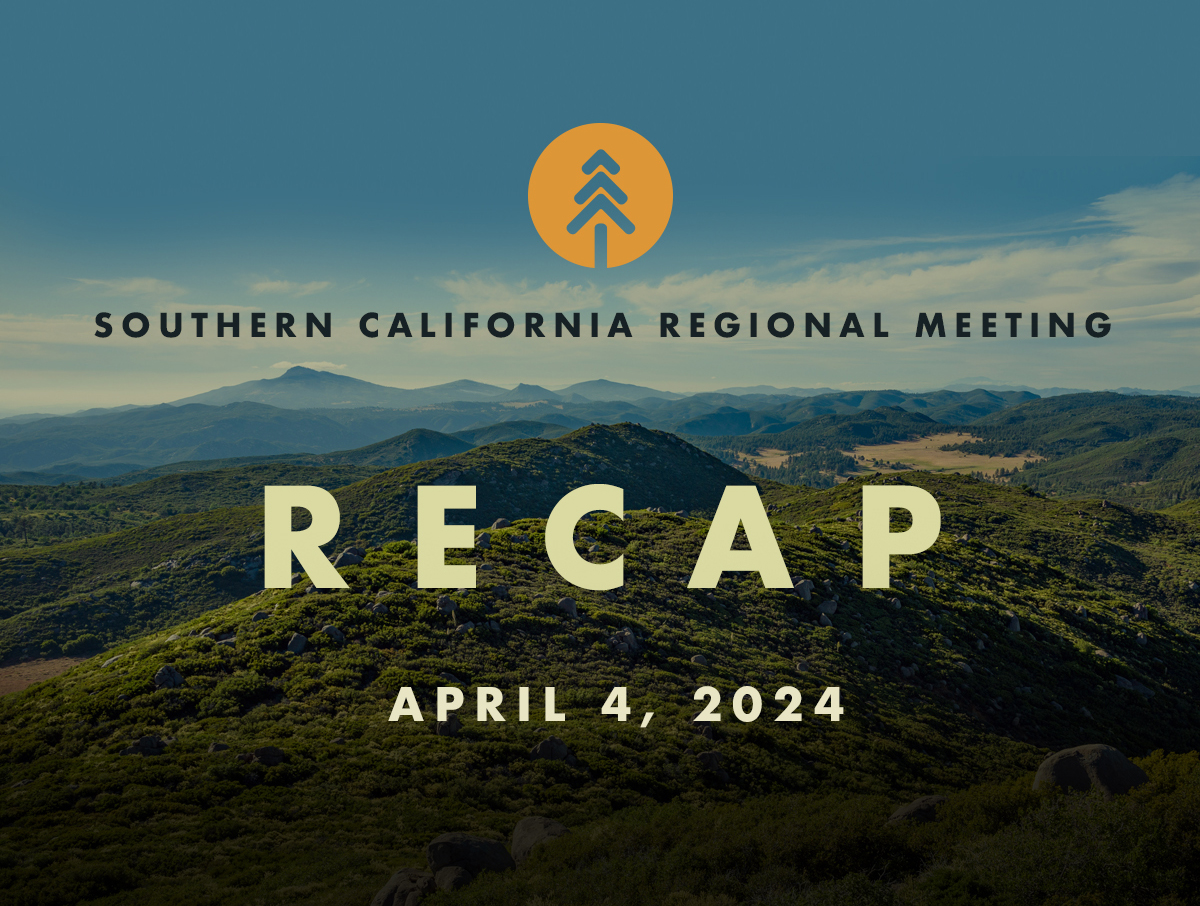USFS Invests $33M to Support Rural Schools & Communities
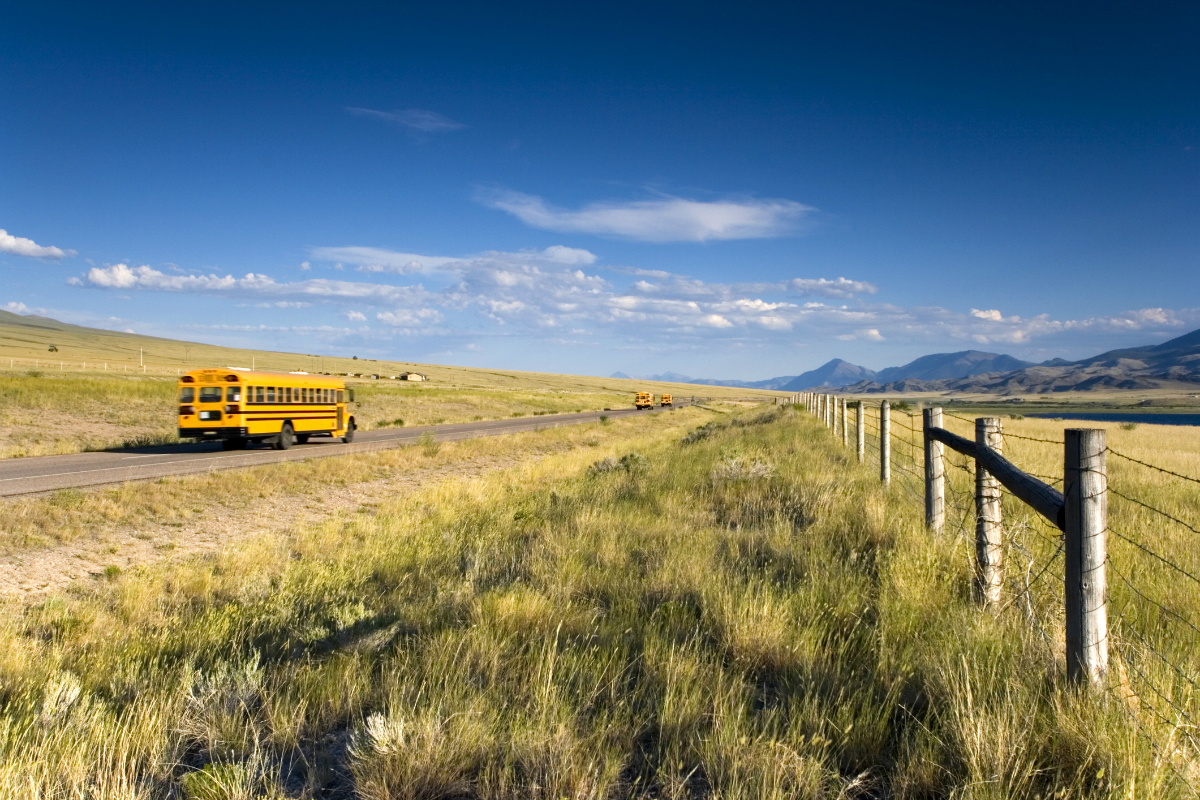
USFS Invests $33M to Support Rural Schools & Communities
On April 12, the U.S. Forest Service announced that California will receive over $33 million of a $232 million package to support public schools, roads and other municipal services through the agency’s Secure Rural Schools program. The funds support crucial public services and pave the way for more jobs. In addition to directly aiding rural schools and roads, funds will reimburse counties for national forest emergency services, and assist in creating community wildfire protection plans.
Two New Films Showcase Paths to Heal CA’s Relationships with Fire and Watersheds
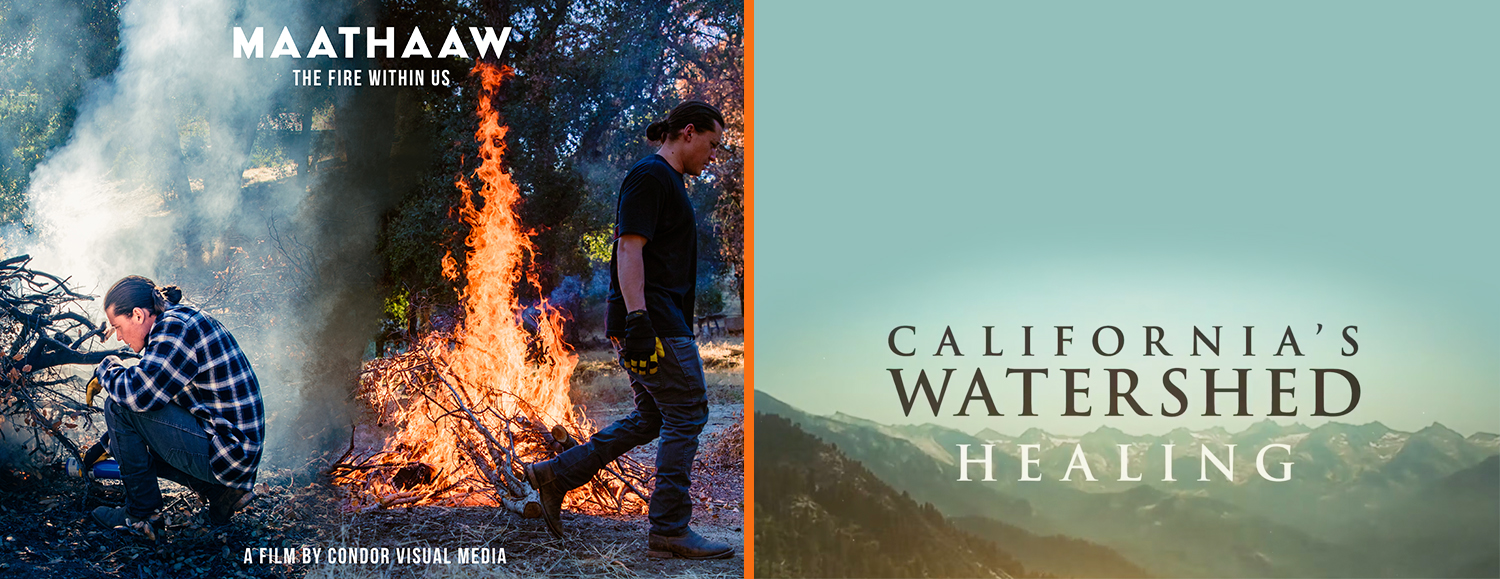
New Films Showcase Paths Forward to Heal California’s Relationships with Fire and Watersheds
MAATHAAW: The Fire Within Us
A powerful, Indigenous-led research documentary created by the Condor Visual Media team with support from the Climate Science Alliance, this film documents the cultural, emotional, and scientific relationships of Southern California Tribes with the gift of fire. The film features cultural practitioners who were part of a panel on Cultural Fire and Indigenous Stewardship at our recent Southern California Task Force meeting. The project is still in production with an anticipated release in Spring 2024. However, you can watch the informative and inspiring 12-minute extended trailer now! Learn more about the project and donate here.
California’s Watershed Healing
Documenting how restoring forests to healthier densities has cascading benefits starting from headwaters to watersheds and ultimately to the state’s water supply, this beautiful film features an array of Task Force partners and makes a compelling case for California to better align goals for forest, wildfire, watershed, and landscape resilience. The full-length film created by UC’s Center for Ecosystem Climate Solutions and the nonprofit Chronicles Group is available to watch here.
Partnered Efforts Will More Than Double Firefighting Capability of Redding Air Attack Base
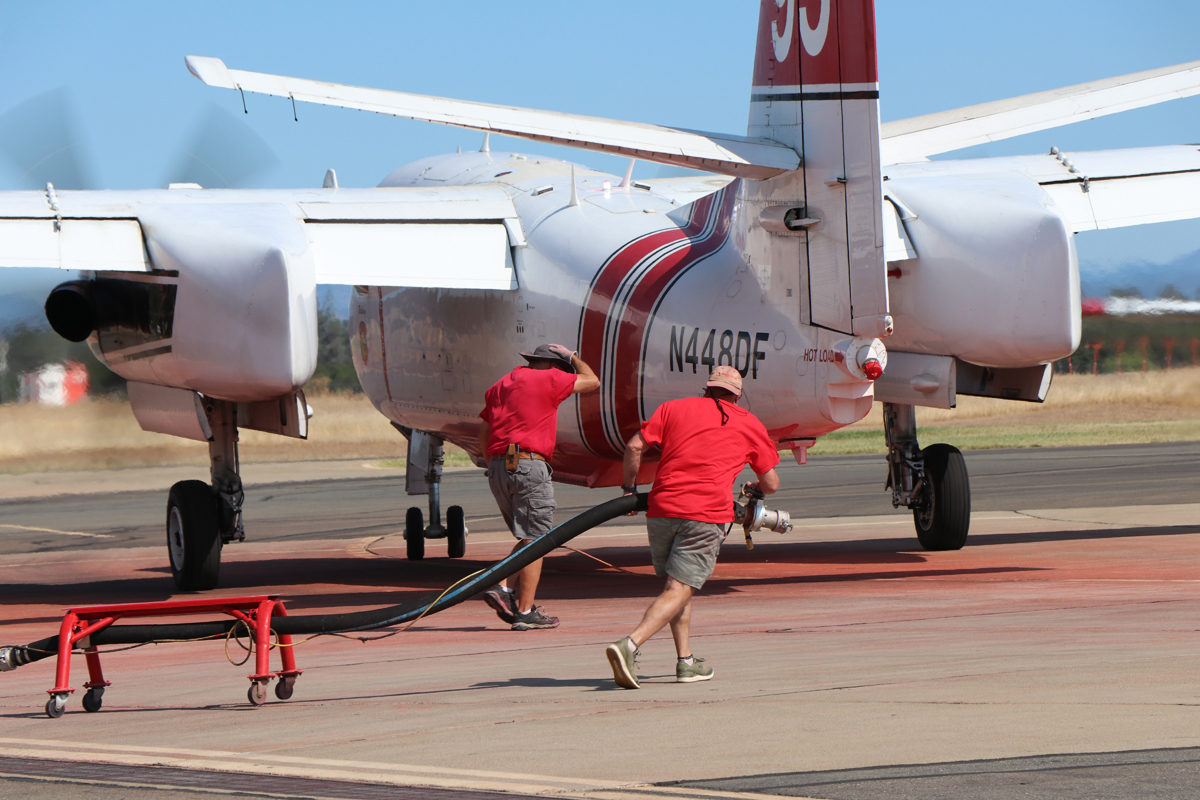
Partnered Efforts Will More Than Double Firefighting Capability of Redding Air Attack Base
On April 25, the US Forest Service and partners, including the Army Corps of Engineers and the City of Redding, will celebrate the completion of Phase 1 in a five-year, $28 million project to expand airtanker loading capabilities by 132% at the Redding Interagency Air Attack Base. The upgrades allow for simultaneous loading of five aircraft, up from two, and increases the base’s fire-retardant loading capacity from 3 million to 6 million gallons. This base is vital in providing initial and extended attack for wildfires across California and the western United States.
US Department of Labor Awards $2.9M for Clean-Up & Recovery After Northern California’s 2021 Wildfires

US Department of Labor Awards $2.9M for Clean-Up & Recovery After Northern California’s 2021 Wildfires
On March 25, the US Department of Labor announced the incremental award of more than $2.9 million to continue supporting disaster-relief employment and employment training services for residents as the state continues to recover from the wildfires that devastated several Northern California communities between July and October, 2021. The grant allows the state to provide temporary jobs for debris removal and forest restoration activities in Lassen, Nevada, Placer, Plumas, Tehama and Trinity counties, including employment and training services for eligible people in the affected areas. This award builds on a previous award from 2022 and brings the department’s total award to California to $5,936,700.
USFS Investments to Help Landowners Access Climate Markets

USFS Investments to Help Landowners Access Climate Markets
On March 15, the USFS announced it is investing nearly $145 million from the Inflation Reduction Act to connect forest landowners with emerging climate markets. This will expand access to markets for underserved and small-acreage forest landowners to address climate change. $32 million will go to organizations with multi-state projects that will impact California.
“Private landowners are key in the fight for climate resilience and forest health,” said Agriculture Secretary Tom Vilsack. “These investments announced today will expand access to markets that were previously out-of-reach, allowing underserved and small-acreage forest landowners to address climate change, while also supporting rural economies and maintaining land ownership for future generations.”
Recap of The Southern California Regional Meeting
SOUTHERN CALIFORNIA REGIONAL MEETING RECAP
April 4, 2024
A full-capacity audience of over 300 people came together at the San Diego Zoo Safari Park in Escondido (with over 200 joining online) for the Governor’s Wildfire & Forest Resilience Task Force’s Southern California regional meeting. Hosted by the Resource Conservation District of Greater San Diego County and the San Diego Zoo Wildlife Alliance, the agenda and activities focused on landscapes and land management issues unique to Southern California, including cultural burning, utilities & infrastructure, and regional planning and implementation.
If you couldn’t make it in person, or missed the real-time webinar, video recordings are available below.
REGIONAL MEETING AGENDA HIGHLIGHTS
- Director’s Report: Director Wright provided an update on recent accomplishments and investments in Southern California, progress being made on Task Force key actions and products as well as an overview of the process to update the Task Force Action Plan.
- Southern California’s Unique Landscapes & Challenges: University researchers discussed threats to the incredibly biodiverse region and management techniques needed to build ecological resilience in the densely populated, shrubland dominated region. Additionally, an update on Regional Resource Kits and how they can be utilized in the region was provided.
- Regional Leadership Panel: Regional leaders shared local project highlights and showcased their efforts to develop landscape-scale projects and align federal, state, and regional plans, priorities, and investments.
- Cultural Fire & Indigenous Stewardship: A panel of cultural practitioners and resource managers discussed obstacles and barriers facing cultural burners, including difficulties in obtaining burn permits, threats to tribal sovereignty, and the continued struggles of California tribes to overcome structural racism in order to maintain traditions and steward ancestral lands.
- The Role of Utilities & Infrastructure in Wildfire Resilience: A panel of energy, water, and transportation agency representatives discussed new and emerging strategies to address wildfire impacts to infrastructure as well as the role utilities play in reducing ignitions.
Welcome & Opening Remarks
• Lisa Peterson, San Diego Zoo Safari Park
• Stephen W. Cope, San Pasqual Band of Mission Indians
• Jennifer Eberlien, USDA Forest Service
• Task Force Executive Committee
• Joel Anderson, San Diego County Supervisor
Director's Report
• Patrick Wright, Task Force
Southern CA's Unique Landscapes & Challenges
Southern CA's Unique Landscapes & Challenges
• Megan Jennings, San Diego State University
• John Battles, University of California, Berkeley
Regional Leadership Panel
Regional Leadership Panel
• Moderator: Kathy Peterson
• Susie Kirschner, Inland Empire Resource Conservation District
• Scott Tangenberg, Cleveland National Forest
• Heather Marlow, Greater SD County Resource Conservation District
• Sal Reyes, San Bernardino National Forest
• Eric Just, CAL FIRE
Trailer Screening: MAATHAAW: The Fire Within Us
Trailer Screening: MAATHAAW: The Fire Within Us
•Learn more and donate at: qrco.de/maathaaw
Cultural Fire & Indigenous Stewardship
Cultural Fire & Indigenous Stewardship
• Moderator: Will Madrigal Jr., Climate Science Alliance
• Wesley Ruise Jr., La Jolla Band of Luiseño Indians
• Marlene’ Dusek, Climate Science Alliance
• Kevin Soland, KRS Environmental Consulting
• Emily Burgueno, Kumeyaay Diegueno Land Conservency
• Travis Armstrong, CAL FIRE
• Joel Arellano, Climate Science Alliance
The Role of Utilities & Infrastructure in Wildfire Resilience
• Moderator: Phil Saksa, Blue Forest
• Caroline Thomas Jacobs, Office of Energy Infrastructure Safety
• Thom Porter, San Diego Gas and Electric
• David Guzman, Southern California Edison
• Greg Woodside, San Bernardino Municipal Water District
• Lisa Worthington, Caltrans
Closing Remarks
• Task Force Co-Chairs
USFS Pacific Southwest Region Releases Broader-Scale Monitoring Results Viewer
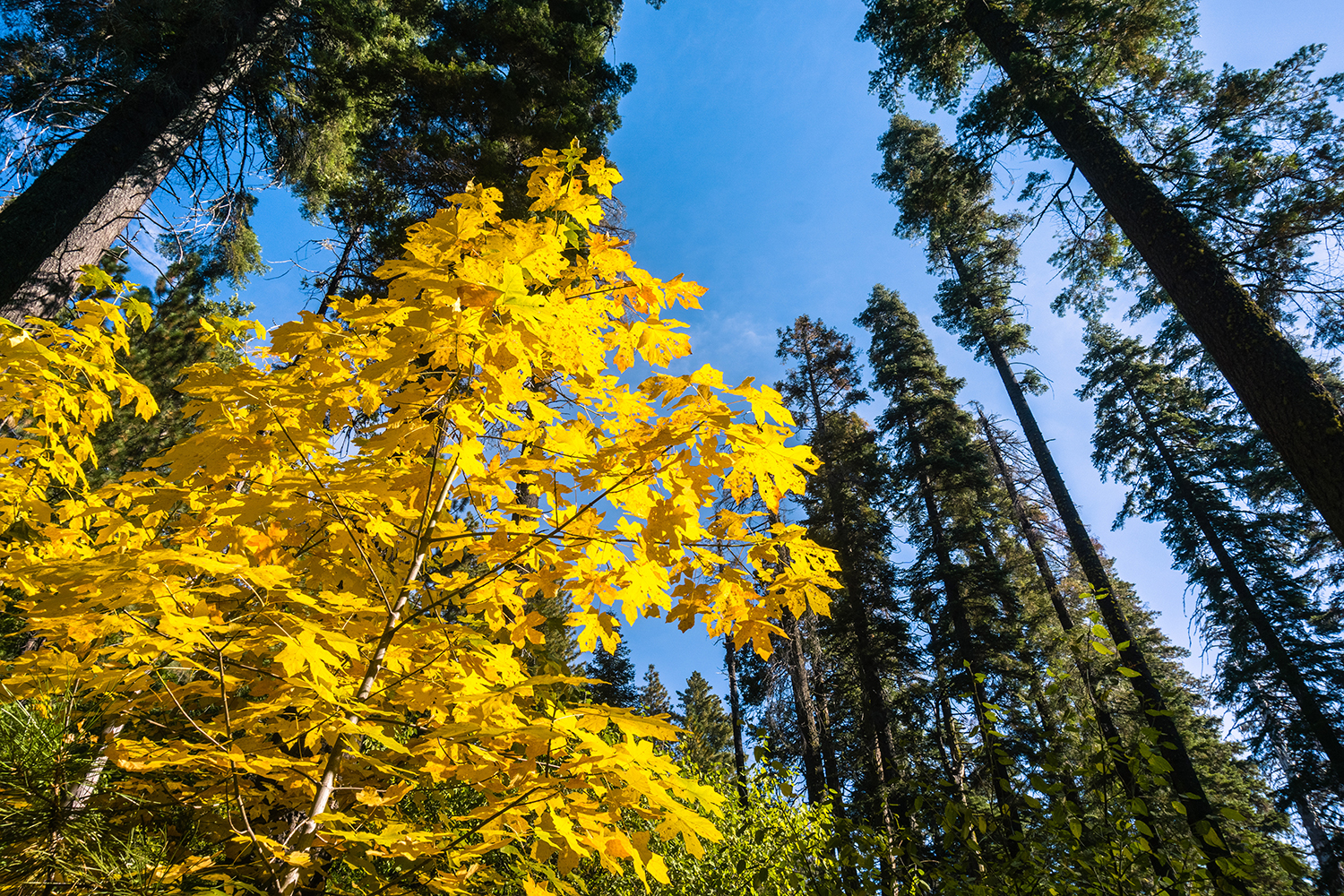
USFS Pacific Southwest Region Releases Broader-Scale Monitoring Results Viewer
A Broader-Scale Monitoring Strategy is an overarching strategy to help answer questions at a broad geographic scale that goes beyond one plan area.
On April 5, 2024, the USFS Pacific Southwest Region released the first results of their Broader-Scale Monitoring Strategy which evaluates the status and trend of social, economic, and ecological conditions on National Forest System lands in California. Monitoring results show that national forests in California have been weakened by chronic stress from climate change as well as climate-amplified disturbances like insect infestation, disease, and wildfire. You can download pdf reports of the results or explore the results and data yourself with interactive features such as dashboards and searchable maps.
SNC Celebrates 20 Years of Impact and Awards $27.5 Million to Forest Resilience & Community Protection Projects
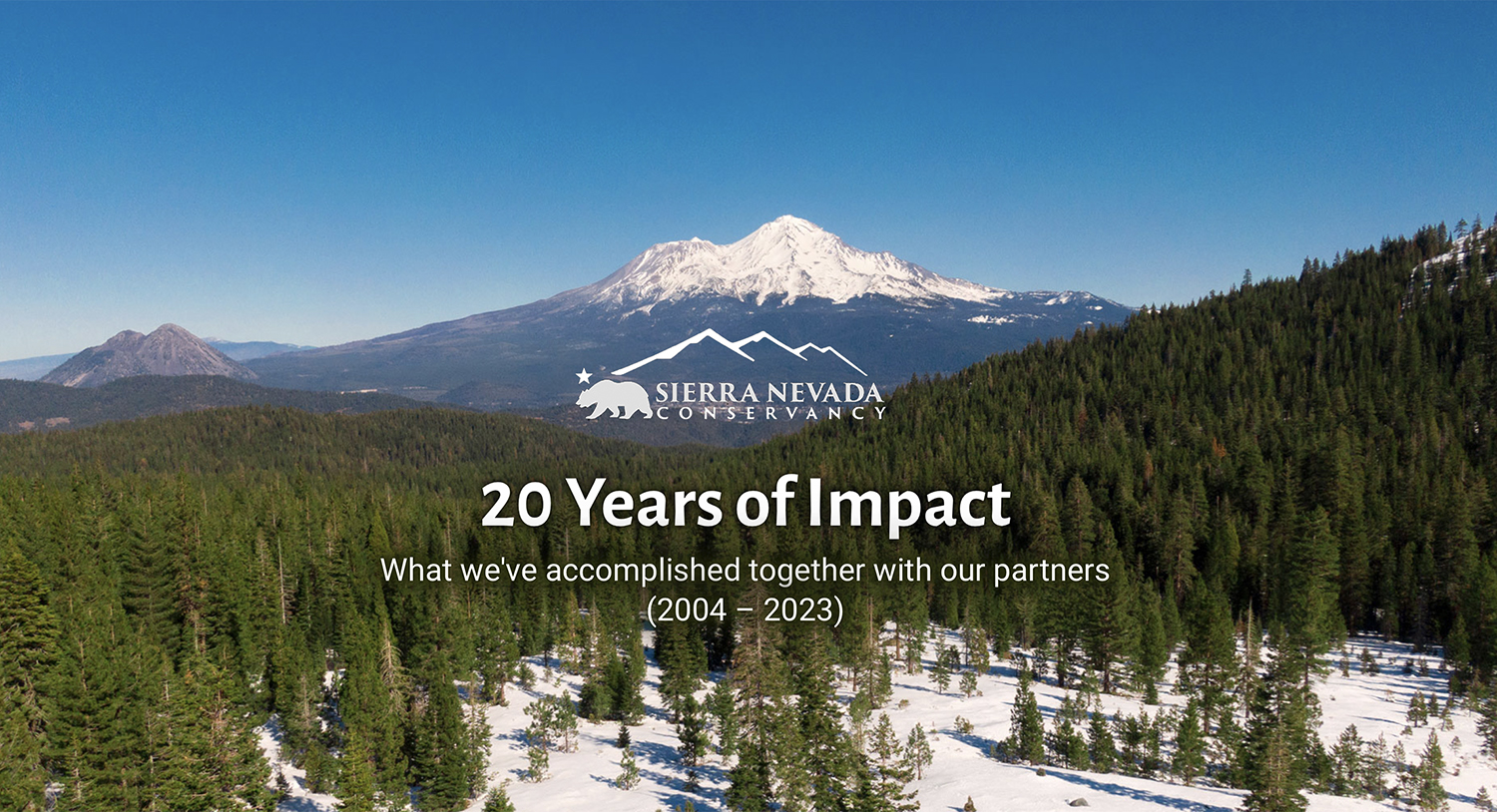
SNC Celebrates 20 Years of Impact and Awards $27.5 Million to Forest Resilience & Community Protection Project
The Sierra Nevada Conservancy (SNC) released a report of accomplishments made with its partners over the past 20 years. SNC is keeping up the good work with the announcement of $27.5 million to 16 different projects that help with the planning and implementation of forest-health efforts that promote recovery and resilience throughout the Sierra-Cascade. Of the 16 projects awarded, eight went to the implementation of shovel-ready projects in Amador, Placer, Plumas, Shasta, Siskiyou, and Tulare counties.

